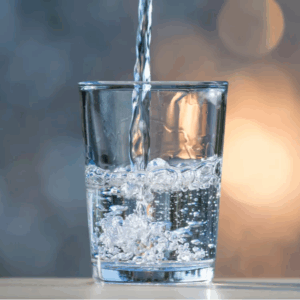Mineral water comes from underground sources and naturally contains minerals and trace elements like calcium, magnesium, sodium, bicarbonate, sulfate, chloride, and fluoride.According to the U.S. Food and Drug Administration, water is only considered mineral water if it contains at least 250 parts per million (ppm) total dissolved solids—which include naturally occurring minerals. Unlike tap and bottled water, mineral water cannot contain added minerals.
May Improve Bone Health
Calcium is an essential mineral that strengthens your bones. Research shows the body can absorb calcium from drinking calcium-rich mineral water just as efficiently as taking calcium supplements or consuming calcium-rich dairy products.
Mineral water is rich in magnesium, so it may strengthen bones because magnesium helps your bones absorb calcium. A large study found postmenopausal women with higher magnesium intakes (not from drinking mineral water, per se) were less likely to experience fractures and decreased bone mineral density related to osteoporosis. This bone disease reduces bone strength and increases your risk of fractures. Still, we need more research on mineral water and how it affects postmenopausal bone loss.
Improves Heart Health
Drinking water, in general, is necessary for good blood flow. Minerals found in mineral water—like calcium, magnesium, and potassium—also help blood circulation. In addition, calcium helps regulate heart rate, and magnesium helps lower blood pressure. Studies show that regularly drinking mineral water with these minerals may improve risk factors that increase your risk of coronary heart disease. This type of heart disease is caused by blocked coronary arteries and affects the blood supply to your heart.
A 2019 review found drinking mineral water daily helped improve participants’ HDL (high-density lipoprotein) cholesterol, blood pressure, and triglyceride levels (fat found in blood). HDL cholesterol is called the “good” cholesterol, and high HDL levels help your body manage cholesterol in your blood to avoid plaque buildup in your arteries. Plaque is caused by high triglycerides and LDL (low-density lipoprotein) cholesterol—known as the “bad” cholesterol. Studies that included postmenopausal women also found drinking mineral water helped lower LDL cholesterol levels.
Eases Constipation
Thanks to its magnesium content, mineral water may help get things moving if you’re backed up. Magnesium is a mineral known to help improve bowel movements by relaxing intestinal muscles and drawing water into your bowels. This softens stools and makes it easier to poop.
A study of 106 participants dealing with constipation found drinking magnesium sulfate and sodium sulfate-rich mineral water helped improve bowel movements after six weeks. Participants who drank 17 ounces of mineral water daily experienced more bowel movements and improved their stool consistency.
However, it’s worth noting that drinking enough fluids, in general, helps improve bowel movements. Someone who drinks a lot of mineral water may be hydrated enough to keep them regular.





